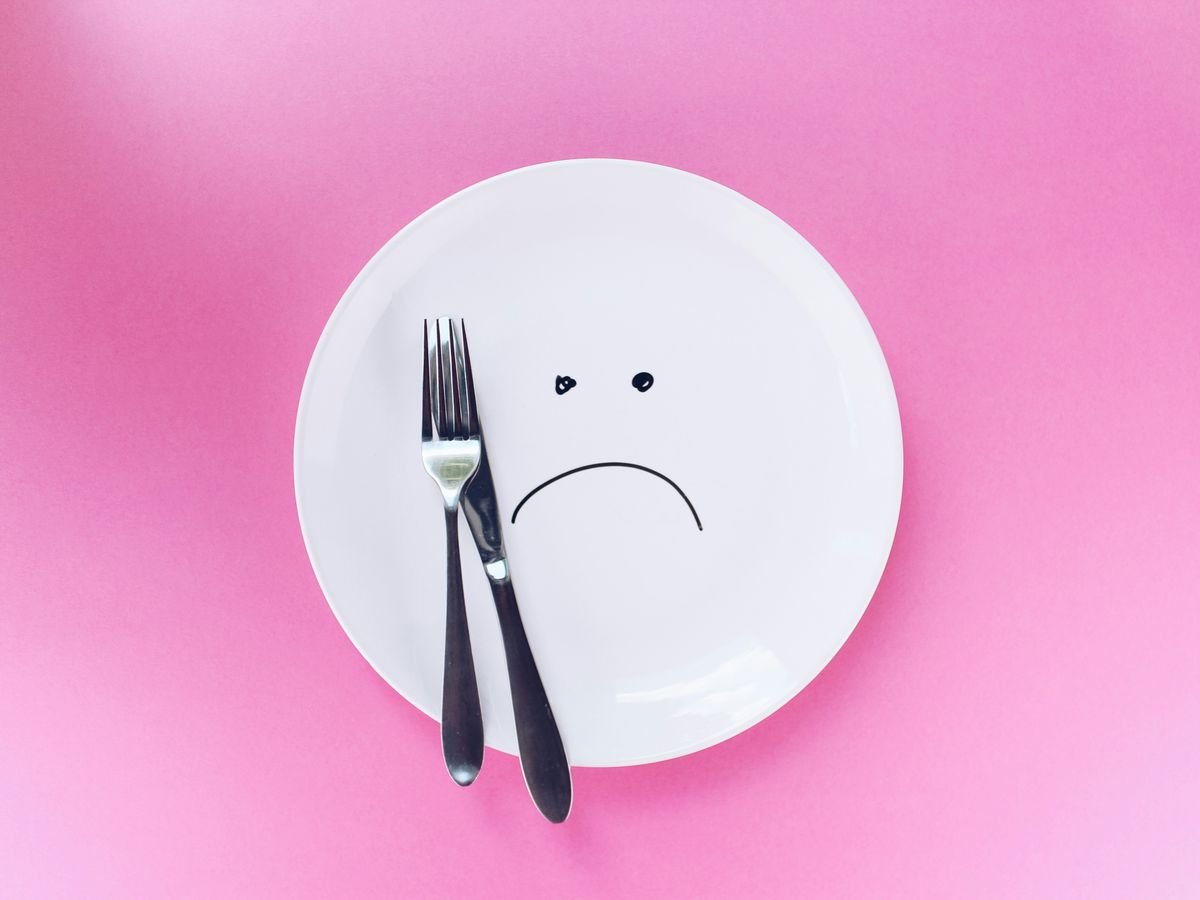
Eating a balanced diet is essential for good health. It means including a variety of foods from different groups to get all the nutrients your body needs. This article will guide you through the best foods to include in your daily meals, helping you to stay healthy and feel your best.
Key Takeaways
- A variety of fruits and vegetables should be part of your daily meals.
- Whole grains are important for energy and should be included regularly.
- Lean proteins like chicken, fish, and beans help build and repair tissues.
- Healthy fats from sources like nuts and avocados are vital for brain health.
- Staying hydrated is just as important as eating well; drink plenty of water.
Exploring the Essentials of a Balanced Diet
Why Balance Matters
Hey there! So, let’s talk about why having a balanced diet is super important. Eating a variety of foods helps our bodies get all the nutrients we need to feel good and stay healthy. When we focus on balance, we can avoid feeling tired or sluggish. Here’s why it matters:
- Keeps our energy levels up
- Supports our immune system
- Helps maintain a healthy weight
Key Nutrients to Include
Now, what should we actually be eating? Here are some key nutrients to include in our meals:
- Fruits and vegetables for vitamins and minerals
- Whole grains for fiber
- Lean proteins for muscle health
- Healthy fats for brain function
- Dairy or alternatives for strong bones
Remember, this involves an emphasis on fruits and vegetables, whole grains, beans and legumes, low-fat protein, and dairy products.
Common Misconceptions
There are a lot of myths out there about diets. Let’s clear a few up:
- Carbs are bad: Not true! Whole grains are essential.
- All fats are unhealthy: Nope! Healthy fats are good for you.
- You can’t snack: Healthy snacks can be part of a balanced diet.
A balanced diet is all about variety and moderation. It’s not about strict rules but finding what works for you!
Fruits: Nature’s Sweet Treats for a Balanced Diet

Top Fruits to Include
When it comes to fruits, I like to keep it simple. Here are some of my favorites that I think everyone should try:
- Apples: They’re crunchy, sweet, and packed with fiber.
- Bananas: Super convenient and a great source of potassium.
- Berries: Blueberries and strawberries are not just tasty; they’re also loaded with antioxidants.
Benefits of Berries
I can’t stress enough how awesome berries are! They’re not just delicious; they also help fight inflammation and boost your immune system. Plus, they’re low in calories, making them a perfect snack. Grapefruit is another fruit that has many health benefits. It contains phytochemicals that fight heart disease, reduce inflammation, and strengthen the immune system.
How to Incorporate More Fruit
Getting more fruit into your diet can be super easy! Here are a few tips:
- Smoothies: Blend your favorite fruits with some yogurt or milk for a tasty drink.
- Snacks: Keep fruits like bananas or apples handy for a quick snack.
- Salads: Toss some berries or orange slices into your salads for a sweet twist.
Fruits are not just sweet treats; they’re essential for a balanced diet. They provide vitamins, minerals, and fiber that our bodies need to stay healthy!
Vegetables: The Powerhouses of Nutrition
Leafy Greens to Add
When it comes to veggies, leafy greens are like the superstars of nutrition! Here are some I love to include:
- Spinach: Packed with iron and vitamins.
- Kale: Crunchy and full of fiber.
- Swiss Chard: Colorful and nutrient-rich.
Root Vegetables Benefits
Root veggies are not just tasty; they come with a bunch of health perks:
- Carrots: Great for your eyes and super crunchy!
- Beets: Good for your heart and blood pressure.
- Sweet Potatoes: Loaded with vitamins and fiber.
Creative Ways to Eat More Veggies
Getting more veggies into my meals is easier than I thought! Here are some fun ideas:
- Toss them in a stir-fry.
- Blend them into smoothies.
- Roast them for a tasty side dish.
Vegetables are a rich source of vitamins, minerals, and fiber. These nutrients help keep your body healthy and prevent illness. So, let’s make sure we’re getting enough of them in our diets!
Whole Grains: The Foundation of a Healthy Diet
When it comes to a balanced diet, whole grains are a must! They provide essential nutrients that our bodies need to function well. Here’s why I think they’re so important:
Best Whole Grains to Eat
- Brown Rice: A great alternative to white rice, it’s packed with fiber and nutrients.
- Oats: Perfect for breakfast, they help lower cholesterol and keep you full.
- Quinoa: A complete protein that’s also gluten-free, making it a fantastic choice for everyone.
Health Benefits of Whole Grains
- They help with digestion due to their high fiber content.
- Whole grains can lower the risk of heart disease.
- They provide steady energy, which is great for keeping you active throughout the day.
Easy Whole Grain Recipes
- Overnight Oats: Just mix oats with milk or yogurt and let them sit overnight.
- Quinoa Salad: Toss cooked quinoa with veggies and a light dressing for a refreshing meal.
- Brown Rice Stir-Fry: Use leftover brown rice with your favorite veggies and protein for a quick dinner.
Whole grains are not just healthy; they can also be delicious and versatile! Incorporating them into your meals can make a big difference in your overall health.
So, if you’re looking to boost your diet, don’t forget about whole grains! They’re a simple way to add more nutrition to your meals and keep you feeling great.
Lean Proteins: Building Blocks of a Balanced Diet
Top Sources of Lean Protein
When I think about lean proteins, I picture foods that help me build muscle without piling on the fat. Here are some of my go-to sources:
- Chicken (especially skinless)
- Turkey
- Fish (like salmon and tuna)
- Beans and lentils
- Nuts (almonds and walnuts are my favorites)
Benefits of Plant-Based Proteins
I’ve found that plant-based proteins are not just for vegans! They’re packed with nutrients and can be super filling. Here’s why I love them:
- They’re high in fiber, which keeps me full longer.
- They’re often lower in calories compared to animal proteins.
- They come with a bunch of vitamins and minerals.
Incorporating Protein into Meals
Getting enough protein in my meals is easier than I thought! Here are some simple ways I do it:
- Add beans to my salads or soups.
- Snack on nuts instead of chips.
- Use tofu or tempeh in stir-fries.
Remember, when it comes to protein, how much is too much? It’s best to get your protein from healthy sources such as low-fat dairy products, fish, nuts, and beans, lean chicken, and turkey; avoid proteins that contain highly processed ingredients.
So, whether you’re a meat lover or a plant-based eater, there are plenty of ways to enjoy lean proteins in your diet!
Dairy and Alternatives: Essential for Bone Health

Best Dairy Choices
When it comes to dairy, I like to keep it simple. Here are some of my go-to options:
- Low-fat milk: Great for calcium without too much fat.
- Greek yogurt: Packed with protein and probiotics.
- Cheese: A tasty way to get calcium, just watch the portions!
Non-Dairy Alternatives
For those who prefer to skip dairy, there are plenty of delicious alternatives:
- Almond milk: Light and nutty, perfect for smoothies.
- Soy yogurt: A great source of protein and calcium.
- Coconut milk: Creamy and rich, but check for added sugars.
How Much Dairy Do You Need?
Honestly, it varies from person to person, but here’s a quick guideline:
- Kids and teens: About 3 servings a day.
- Adults: Aim for 2-3 servings daily.
- Older adults: 3 servings can help keep bones strong.
Remember, dairy is a fantastic source of calcium and vitamin D, which are crucial for bone health. If you’re not a fan of dairy, just make sure to find alternatives that are fortified with these nutrients!
Healthy Fats: Not All Fats Are Created Equal

Good vs. Bad Fats
When it comes to fats, not all of them are created equal. Some fats are actually good for you, while others can be harmful. Here’s a quick breakdown:
- Fats to love: Vegetable oils (like olive oil) and fish oils.
- Fats to limit: Butter, cheese, and heavy cream.
- Fats to avoid: Trans fats, which are often found in processed foods like donuts.
Sources of Healthy Fats
So, what are some great sources of healthy fats? Here are a few I enjoy:
- Avocados: Creamy and delicious, they’re packed with nutrients.
- Nuts and seeds: Almonds, walnuts, and chia seeds are fantastic options.
- Fatty fish: Salmon and mackerel are not only tasty but also rich in omega-3s.
How to Use Healthy Fats in Cooking
Incorporating healthy fats into your meals can be super easy. Here are some tips:
- Drizzle olive oil on salads or veggies.
- Use avocado in smoothies for a creamy texture.
- Snack on a handful of nuts instead of chips.
Remember, while healthy fats are beneficial, moderation is key. Too much of even the good stuff can lead to weight gain.
In conclusion, understanding the types of fat in food is crucial. A diet rich in saturated fats can drive up your total cholesterol and tip the balance toward more harmful LDL cholesterol, which can lead to blockages in arteries. So, let’s make smart choices and enjoy those healthy fats!
Hydration: The Often Overlooked Component of a Balanced Diet
Importance of Staying Hydrated
Staying hydrated is super important for our overall health. Water is essential for almost every function in our bodies. It helps with digestion, keeps our skin looking good, and even helps us think clearly. I mean, who doesn’t feel a bit sluggish when they haven’t had enough water?
Best Hydration Choices
When it comes to hydration, not all drinks are created equal. Here are my top picks:
- Water: The best choice, hands down.
- Herbal teas: They can be refreshing and come in so many flavors.
- Infused water: Add some fruits or herbs for a tasty twist.
Signs of Dehydration
Sometimes, we don’t realize we’re dehydrated until it’s too late. Here are some signs to watch out for:
- Dry mouth
- Fatigue
- Dark yellow urine
Staying hydrated is key to feeling your best. If you’re ever unsure, just remember: drink more water!
Snacks and Treats: Balancing Indulgence with Nutrition
Healthy Snack Ideas
When it comes to snacking, I like to keep it fun and nutritious. Here are some of my go-to snacks that hit the spot:
- Greek yogurt with honey and berries
- A handful of nuts for that crunchy goodness
- Sliced veggies with hummus for a refreshing dip
Balancing Sweet Cravings
We all have those moments when we crave something sweet. Instead of reaching for candy, I try to satisfy my sweet tooth with:
- Fresh fruit like apples or bananas
- Dark chocolate (in moderation, of course!)
- Homemade energy balls made with oats and nut butter
Making Smart Choices with Snacks
It’s all about the 80/20 rule for me. I aim for 80% healthy choices and allow myself 20% for those indulgent treats. Here are some tips to keep in mind:
- Always read labels to avoid hidden sugars.
- Portion control is key; don’t eat straight from the bag!
- Keep healthy snacks handy to avoid temptation.
Remember, snacking can be part of a balanced diet if you choose wisely. It’s all about enjoying what you eat while keeping your health in check!
Meal Planning: Creating Balanced Diets for Every Day

Tips for Effective Meal Planning
When it comes to meal planning, I’ve found that a little prep goes a long way. Here are some tips that work for me:
- Plan your meals for the week: This helps me avoid last-minute junk food runs.
- Make a shopping list: Stick to it to keep your pantry stocked with healthy options.
- Prep ingredients ahead of time: Chopping veggies or cooking grains in advance saves time during the week.
Sample Balanced Meal Plans
I like to keep my meal plans simple yet varied. Here’s a quick example:
- Breakfast: Oatmeal topped with fresh fruit and nuts.
- Lunch: Quinoa salad with mixed veggies and a protein source like chickpeas.
- Dinner: Grilled chicken with steamed broccoli and brown rice.
- Snacks: Greek yogurt or a handful of almonds.
Adjusting Plans for Dietary Needs
Everyone has different needs, and that’s totally okay! Here’s how I adjust:
- For vegetarian options, I swap out meat for beans or tofu.
- If I need to cut carbs, I focus more on veggies and lean proteins.
- Always listen to your body and adjust as needed!
Meal planning isn’t just about food; it’s about making life easier and healthier. With a little effort, I can enjoy delicious meals without the stress!
Supplements: When and What to Consider
Do You Need Supplements?
So, here’s the deal: not everyone needs supplements. If you’re eating a balanced diet filled with fruits, veggies, whole grains, and lean proteins, you might be getting all the nutrients you need. But sometimes, life gets busy, and it’s tough to eat perfectly every day. That’s where supplements can come in handy! Here are a few reasons you might consider them:
- You have specific dietary restrictions (like being vegan or gluten-free).
- You’re pregnant or breastfeeding and need extra nutrients.
- You have a health condition that affects nutrient absorption.
Commonly Recommended Supplements
If you decide to go the supplement route, here are some popular ones to think about:
- Multivitamins: Great for filling in the gaps in your diet. Research shows that taking a multivitamin daily improves vitamin C, zinc, and vitamin D status as well as self-reported perceived immune status improvements.
- Vitamin D: Especially important if you don’t get enough sunlight.
- Omega-3 Fatty Acids: Good for heart health, especially if you don’t eat fish.
Choosing the Right Supplements
When picking out supplements, keep these tips in mind:
- Check the label: Look for quality brands that have been tested for purity.
- Talk to a doctor: They can help you figure out what you really need.
- Don’t overdo it: More isn’t always better; stick to recommended doses.
Remember, supplements are just that—supplements. They should complement a healthy diet, not replace it!
When thinking about supplements, it’s important to know what can help your body. NuviaLab Immune is a great choice for boosting your immune system. It has natural ingredients that can help you feel better and stay healthy. If you’re curious about how to support your health, visit our website to learn more!
Wrapping It Up: Eating for Health
So, there you have it! Finding the right foods for a balanced diet doesn’t have to be hard. Just think about adding more fruits, veggies, whole grains, and lean proteins to your meals. These foods not only taste great but also help keep your body happy and healthy. Remember, it’s all about mixing things up and enjoying what you eat. If you’re unsure about what’s best for you, chatting with a dietitian can really help. So go ahead, make those tasty choices, and feel good about what you put on your plate!
Frequently Asked Questions
What foods should I eat every day for a balanced diet?
To have a balanced diet, try to eat a variety of fruits, vegetables, grains, dairy, and proteins like lean meats or beans every day.
Is there one food that is the healthiest?
No single food can give you all the nutrients you need. A mix of different foods is the best way to stay healthy.
What are some examples of healthy snacks?
Healthy snacks include fruits, yogurt, nuts, and whole-grain crackers.
How can I add more fruits and vegetables to my meals?
You can add fruits and veggies by including them in smoothies, salads, or as side dishes with your meals.
What are healthy sources of protein?
Good sources of protein include chicken, fish, beans, nuts, and eggs.
How much water should I drink each day?
It’s good to drink about 8 glasses of water a day, but you may need more if you’re active.
Are all fats bad for you?
Not all fats are bad. Healthy fats, like those from avocados and nuts, are good for you in moderation.
Should I take vitamins or supplements?
You should talk to a doctor to see if you need any vitamins or supplements based on your diet.
About the Author






0 Comments